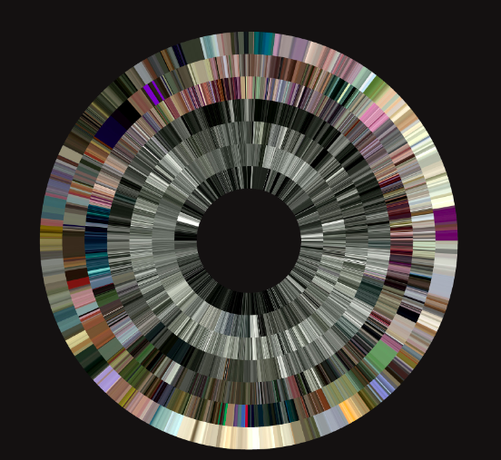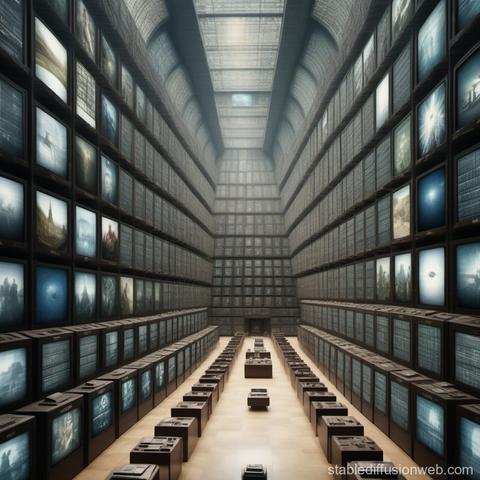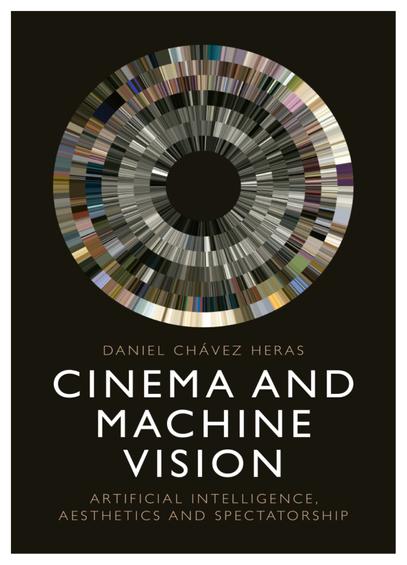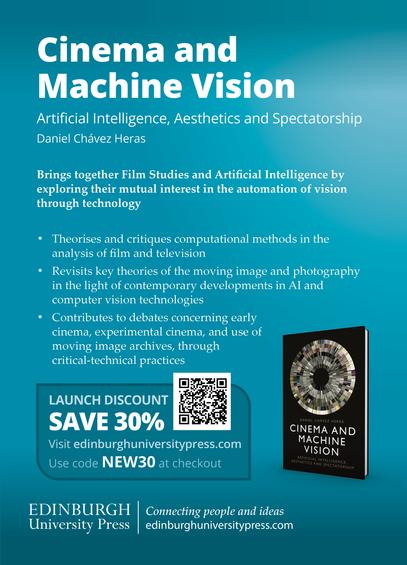| Website | https://movingpixel.net/ |
| Vimeo | https://vimeo.com/chavezheras |
| KCL | https://www.kcl.ac.uk/people/daniel-chavez-heras |
| ORCID | https://orcid.org/0000-0002-9877-7496 |
Daniel
@chavezheras@sigmoid.social
- 147 Followers
- 116 Following
- 46 Posts
Interdisciplinary technologist and academic. I currently research and teach visual culture and ML/AI at King's College London @kingsdh
Next week I'll be with Will DiGravio recording an episode of the Video Essay Podcast in front of a live audience! Join us if you are in London ―it is free: https://www.kcl.ac.uk/events/cinema-and-machine-vision Or listen to the podcast after, it's truly wonderful: https://thevideoessay.com/ #AI #AiArtCommunity #cinema #film #podcast #london
Want to know more? If you are in London in May, I'll be speaking as part King's AI festival to launch the book. Register here 👉🏽 https://kcl.ac.uk/events/cinema-and-machine-vision #AI #creativeAI #GenAI #books #London
There are new forms of pleasure, truth and power, that come with this large-scale reorganisation of visual culture. A longer and broader view allows us to trace a technical and cultural lineage that runs from photography to cinema to machine vision, all the way to #GenAI and text-to-video
It is quite telling, for example, that the clips from this TED video, created using Open AI's text-to-video model, had to be edited together professionally to create a meaningful montage 👉🏽 https://twitter.com/TEDTalks/status/1781351036877156452
Models such as this have no strong internal representations of "shots" or "cuts" (yet). They unroll time and motion instead of recording it
Models such as this have no strong internal representations of "shots" or "cuts" (yet). They unroll time and motion instead of recording it
TED Talks (@TEDTalks) on X
What will TED look like in 40 years? For #TED2024, we worked with artist @PaulTrillo and @OpenAI to create this exclusive video using Sora, their unreleased text-to-video model. Stay tuned for more groundbreaking AI — coming soon to https://t.co/YLcO5Ju923!
It is hard to know. Partly by design. Partly because we don't have the right tools of knowledge to answer these questions yet. But we do know that AI is very rapidly becoming media, an we now have a very good idea of how 👇🏽
These systems are trained to watch on our behalf and reproduce what they see guided by text prompts. But whose vision is encoded in them and how? 👀 Is this a new type of cinematic engine? or a way for tech companies to extract value from filmmakers and creators? or both?
Moving images have gone from celluloid🎞️ to digital🖥️, from recordings 🎥 to data streams 💽 to calculations 🖩. This has made online video platforms and film archives a very valuable source of training material for AI models ― as long as computers can taught how to watch!
My new book 👉🏽 Cinema and Machine Vision: Artificial Intelligence, Aesthetics and Spectatorship. Pre order now from Edinburgh University Press
with 30% discount using the code NEW30 👉🏽 https://edinburghuniversitypress.com/book-cinema-and-machine-vision.html And please help me spread the word! #AI #book #machinelearning #computervision #creativeAI
with 30% discount using the code NEW30 👉🏽 https://edinburghuniversitypress.com/book-cinema-and-machine-vision.html And please help me spread the word! #AI #book #machinelearning #computervision #creativeAI
Mastodon friends, there are still places left for our panel event on high dimensional cinema next week @kingsdh What is high dimensional cinema, you ask? My cringey synthetic pixar-like doppelganger below can explain. Register here: https://www.eventbrite.co.uk/e/high-dimensional-cinema-tickets-652127018467
#cinema #creative #ai #culturalanalytics #event #london
#cinema #creative #ai #culturalanalytics #event #london
The recording of our panel on human-centered design for AI systems at Somerset House is now online! I presented a kind of gentle introduction to ongoing research (and forthcoming article) @kingsdh https://garden.movingpixel.net/public_notes/Human-centered-machine-vision/




